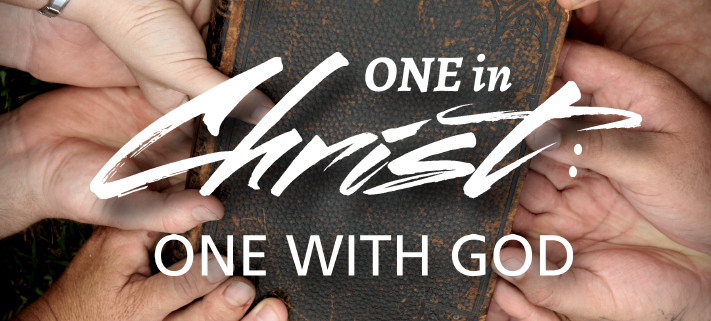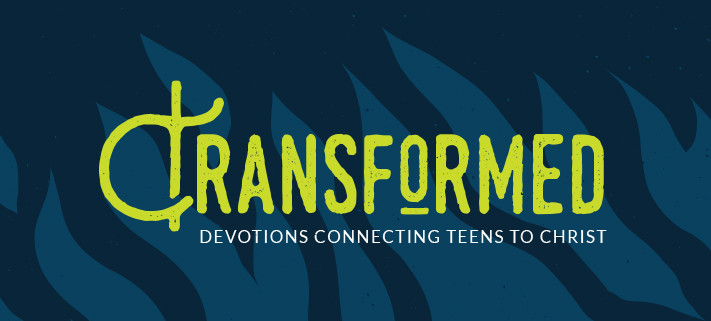Confessions of faith: Young
A man who helps share the gospel around the world started with his own journey of faith.
Julie K. Wietzke
Sean Young says he’s not much of an adventurer. He doesn’t even really like to travel.
Yet since he took the job as director of missions operations for WELS in 2012, he has been to the jungles outside Kumba, Cameroon; to Red Dirt Village in the mountains of Thailand; and to Kiev, the largest city in Ukraine—all to help plan how to spread God’s Word around the world. “It’s crazy that the Lord saw fit to put me here to help with that,” he says.
But Young will be the first to say that going to these exotic locales hasn’t been his greatest journey. His greatest journey has been one of faith—a trip that gave him true freedom through the gospel.
Growing up in an Irish family in Milwaukee, Young was raised in the Catholic Church, which included going to confession, serving as an altar boy, and being a Christian Youth Organization representative on the church council.
It was during a church council meeting that he started questioning the congregation’s priorities. The group was discussing an annulment request that came with a monetary gift—a request that came from the parents of one of Young’s friends. When the council began talking about how to use the money, Young raised the question, “Shouldn’t we be talking about the marriage?” His question was ignored and when he brought it up again, he was asked by the priest to step out into the hallway. When he told the priest that he couldn’t go to a church like this, the priest said, “Don’t worry, you’ll learn the ways of the church.”
“I left and never went back,” says Young. He was 18 years old.
Even though he left the Catholic Church, Young wasn’t giving up on religion. He began attending worship on Sunday at other denominations—United Methodist, Presbyterian and the Free Church. “Eventually when you’re church shopping, you end up sitting in the back so you can get an easy exit in case something goes wrong,” says Young. “I wasn’t finding truth anywhere.”
During the week, Young had to travel cross town by bus to get to his high school. One day he was heading home from school and stopped outside St. Lucas to look at the church service times. “I thought, This looks like a big old Catholic church—I should try this,” says Young. “I had no idea what Lutheran was, much less WELS.”
As he was looking at the times, a hand came down on his shoulder. “I heard someone say, ‘Looking for a church, son?’ ” says Young. “[The pastor] started talking to me and invited me inside. I asked him all sorts of questions, and before I knew it, three hours had gone by.”
That Sunday Young took the bus to St. Lucas to attend worship. As in the past, he sat down and had his exit strategy ready when in walked the girl he was dating and her family. They sat right in front of Young. After some initial confusion, Young sat with his girlfriend and her family for the service.
At this church, Young found what he was looking for. “My perception was that in the Catholic Church, the priest was telling you what the Bible said. Here the priest—I didn’t know he was called a pastor—was reading from the Bible,” he says.
“The sermon blew my socks off. It scared the snot out of me. He had me going to hell the one minute, and the next minute he told me why I had eternal salvation. It was the best sermon I ever heard,” says Young. “In 20 minutes, he opened my eyes. I was blown away. I thought, I have to get more of that.”
After the service, the pastor invited Young to Bible information class (BIC). Young agreed, and his girlfriend, Kirsten, offered to go with him.
Two years later, Young became a member. “I went from a two-time BICer to a confirmed adult,” he says. “I went twice not because I was a slow learner but because my commitment to my faith was huge and I didn’t want to go through what I just went through at [my old church].”
Young’s becoming a Lutheran didn’t sit well with his family. His mom, a strong Irish Catholic, had him excommunicated from the Catholic Church, kicked him out of the house, and didn’t talk to him for close to three years. “If you’re brought up Catholic, anything other than Catholicism is considered a cult,” Young explains. “She wanted me to be a priest.”
His grandmother finally helped convince his mom to rekindle the relationship—about five months before his wedding to Kirsten.
After that Young shared his faith often with his mom before her death. “Our first conversation was about having to go to confession,” he says. “Growing up a Catholic kid, you dreaded going into the box. I was telling her that this isn’t something she needs to do. The Lord is not asking this of her—for her to demonstrate her faith. That [discussion] went on for years.” He continues to witness to his brothers and sisters, who still don’t all know the truth. “I know their eternal salvation depends on it, but all I can do is plant the seed and leave it up to the Lord.”
His family aren’t the only people whom Young has told about the gospel’s saving message. “I’ve been on the evangelism committee of every church I’ve ever been at because we have to share this,” he says. “Growing up Catholic, I didn’t have this kind of faith. I didn’t have this kind of relief. I didn’t have this kind of joy in my faith. It was all the black marks on the soul. It was all the heavy lifting you had to do to stay ahead of it. And you just can’t do it. Here it’s just the truth; it’s just the gospel.”
Being part of WELS Missions is giving him an opportunity to spread that good news even further—though he didn’t immediately apply for the job. At the time, he was running a construction company and doing quite well. “I was making money. My plan was all set—here I am, still thinking it was my plan!” he says.
Several pastors kept encouraging him to apply. “Two and a half months later [my family] took a big step off the cliff, not knowing, and God instantly caught us and kept providing for us,” says Young. “It was like a rebirth. [Before] I was living for the dollar; I wasn’t living for my family or for my faith. This was a nice way for God to slap me upside the head and say, ‘Hey, let’s get back to doing what you love.’ ”
Doing what he loves means sharing the freedom the gospel provides by helping plan mission opportunities around the United States and the world and helping administer the gifts the Lord has provided for outreach. It’s a fitting next leg in his journey of faith.
And though we can’t all be part of the day-to-day work of WELS Missions, Young reminds us that we all have mission work to do. “We have to stay vigilant,” he says. “We have to make sure that we don’t just rest on the Word and be comfortable with it. We have to understand that our purpose is to share that gospel message with folks because there’s not a lot of time left.”
Julie Wietzke is managing editor of Forward in Christ magazine.
SUBMIT YOUR STORY
Do you have a manuscript, idea, or story from your own life you’d like to share for use in Forward in Christ or on wels.net? Use our online form to share it to our editorial office for consideration.
SUBSCRIBE TO FORWARD IN CHRIST
Get inspirational stories, spiritual help, and synod news from Forward in Christ every month. Print and digital subscriptions are available from Northwestern Publishing House.
Author: Julie K. Wietzke
Volume 103, Number 3
Issue: March 2016
Copyrighted by WELS Forward in Christ © 2021
Forward in Christ grants permission for any original article (not a reprint) to be printed for use in a WELS church, school, or organization, provided that it is distributed free and indicate Forward in Christ as the source. Images may not be reproduced except in the context of its article. Contact us







